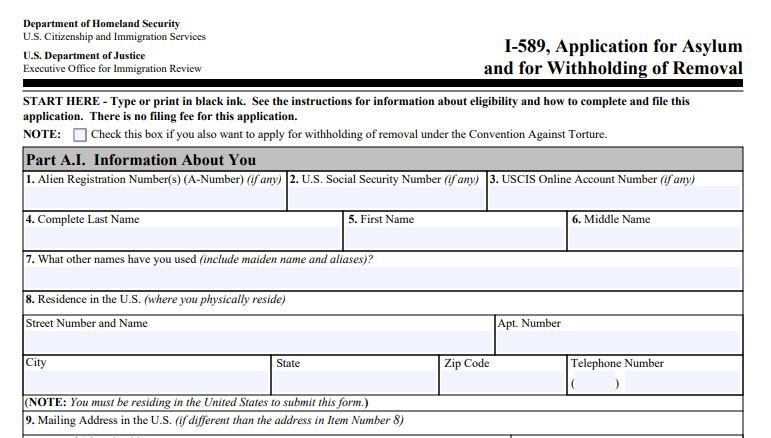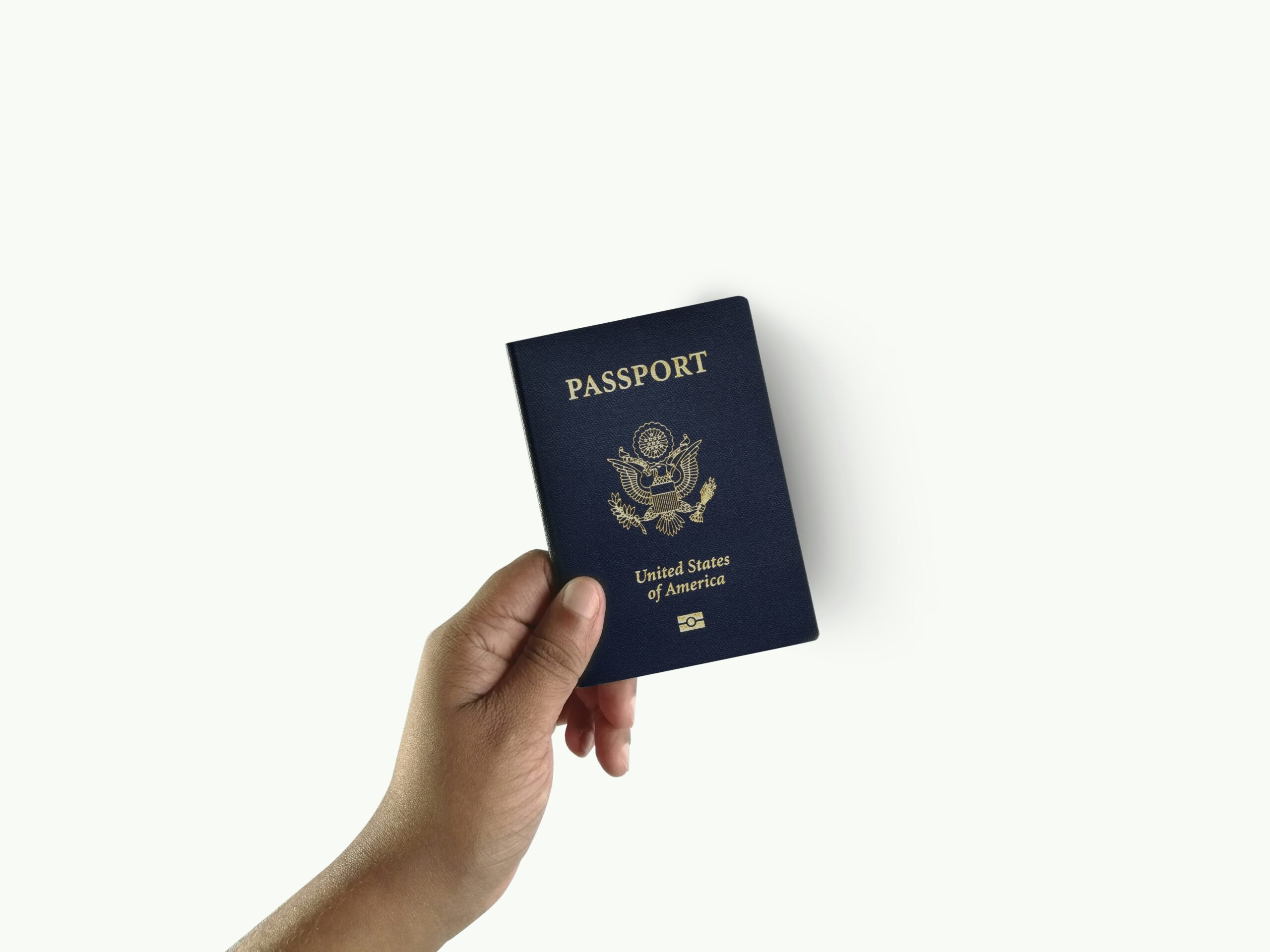 Image Source: USCIS
Image Source: USCISAn asylum is a crucial form of legal protection granted to those who fled their home countries because of persecution or fear of harm. Navigating the asylum process can be complex and overwhelming, especially for individuals who have already experienced trauma and uncertainty in their home countries.
Asylum processing time is a critical aspect of the immigration journey. Being well-informed about the process can empower applicants to navigate it confidently and hope for a better future.
So how long does the asylum process take?
The asylum processing time varies depending on several factors. These may include case backlog, individual case complexity, and changes in policy or political climate.
Read on as we explore the following:
Table of Contents
The asylum process in the United States is complex and often lengthy. It allows individuals who fear persecution in their home country to seek protection and remain in the U.S.
Under the discretion of the Department of Homeland Security (DHS), asylum can be granted to those who meet specific criteria.
Who is Eligible for Asylum?
To be eligible for asylum in the United States, individuals must meet specific criteria:
Hire St. Louis Asylum Attorneys
The first step in the asylum process is to consult with an immigration attorney who can guide you through the entire journey.
Share your immigration concerns during this initial consultation. Provide also the necessary information for the attorney to assess the validity of your asylum claim.
Once you pursue an asylum claim, gather supporting documentation to strengthen your case.
This documentation may include the following:
After thorough preparation, your immigration attorney will assist you in completing and filing the asylum application, Form I-589, with the appropriate DHS office. This application should include detailed information about your identity and reasons for seeking asylum. It also requires any supporting evidence you have gathered.
It is crucial to submit the form within one year of arrival in the United States unless there are exceptional circumstances.
Upon submitting your asylum application, you will be scheduled for a biometric appointment. It is where your fingerprints, photograph, and signature will be collected for background checks.
This process involves visiting an Application Support Center (ASC) to provide fingerprints for FBI background checks. It ensures that applicants do not pose a security risk to the United States.
Following the biometric appointment, you will be called for an asylum merits interview with an asylum officer from the U.S. Citizenship and Immigration Services (USCIS). This interview aims to evaluate the credibility of your asylum claim. It also seeks to gather any additional information necessary to make a decision.
The USCIS asylum officers will assess the credibility of your fear of persecution. They will also determine if you qualify for asylum.
The interview is a crucial stage in the process. It can last several hours. And asylum applicants must be prepared and provide accurate and detailed information.
Tips for a Successful Asylum Merits Interview
Here are some tips to increase the chances of a successful asylum merits interview:
Compile and organize evidence. Gather all relevant evidence. These include documents, photographs, and witness statements supporting your asylum claim. Organize this evidence clearly and concisely to present during the interview.
Prepare your testimony. Practice recounting your story and explaining why you fear persecution in your home country. Be honest, concise, and focused on the key details that support your claim.
Stay calm and composed. The asylum interview can be stressful. But you must remain calm and composed. Also, answer questions truthfully and to the best of your ability. Seek clarification if you do not understand a question.
Build rapport with the asylum officer. Establishing a positive rapport with the asylum officer can help create a favorable impression. Be respectful, attentive, and maintain eye contact during the interview.
Be credible and consistent. Consistency and credibility are crucial during the asylum interview. Ensure that your statements align with the information provided in your application and supporting evidence.
Once the asylum interview is complete, you will enter a waiting period until a decision is made on your asylum application.
There are three possible outcomes:
Grant of Asylum. If the asylum officer determines the applicant meets the criteria for asylum, they will be granted asylum status. This allows them to remain in the United States and eventually apply for permanent residency.
Referral to Immigration Court. If the asylum officer determines the applicant does not meet the criteria for asylum but believes they may have a valid claim for other forms of relief, they may refer the case to an immigration judge for further review.
Denial of Asylum. If the asylum officer determines the applicant does not meet the criteria for asylum and does not have a valid claim for other forms of relief, they will deny the asylum application. In some cases, applicants may have the option to appeal the decision.
The processing time for asylum cases or each step of the asylum process can vary significantly depending on various factors. Applicants must be aware of these factors to understand the potential timeline of the asylum process.
If an asylum application is denied or referred to an immigration judge, the asylum seeker will enter the immigration court system. This is known as the defensive asylum process. The immigration judge will review the case, hear arguments from both sides and then decide on the asylum claim.
During immigration court proceedings, you will have the right to be represented by an attorney. Present also additional evidence to support your case. The length of the court proceedings can vary significantly depending on factors such as court backlog and the complexity of the case.
The processing time for asylum applications can range from months to years. It is important to understand that each case is unique. Several factors can also influence the timeline.
Here are some key factors that may affect the processing time of your asylum application:
The complexity of your asylum case can significantly impact the processing time. Cases with more intricate legal or factual issues may require additional time for review and analysis by the asylum officer.
The backlog of asylum applications can also contribute to longer processing times. The number of migrants filing asylum claims has risen in recent years. And this lead to longer waiting periods for interviews and decisions.
If there is a high volume of pending cases or a surge in new applications, the asylum office may experience delays in reviewing and adjudicating cases. The backlog can vary depending on resources, staffing, and policy changes. Stay informed about the current backlog status to manage your expectations regarding the processing time.
Your home country's political and social conditions can impact the processing time of your asylum application. If there is an increase in asylum claims from individuals originating from a particular country due to ongoing conflicts or human rights issues, it may lead to longer processing times as resources are allocated to address the influx of cases.
However, it is important to note that processing times can still vary based on individual circumstances and factors beyond nationality alone.

Having legal representation can significantly impact the processing time of an asylum application. Applicants with legal representation are likely to have their cases approved. They can also experience shorter processing times.
An immigration attorney specializing in asylum cases can help you strengthen your application and advocate for your rights. They can also keep you informed about the current status of your case and provide updates on any changes in the asylum process.
Navigating the asylum process can be complex and overwhelming. But having an experienced immigration lawyer by your side can make a significant difference. Immigration lawyers specialize in asylum cases. They have in-depth knowledge of the legal requirements, documentation, and strategies to present a strong case. They also ensure that their client's rights are protected and their case is presented effectively.
Immigration lawyers at Hacking Immigration Law, LLC can help applicants potentially expedite the asylum process. We can ensure that all necessary documentation is gathered and submitted promptly. We provide guidance on preparing for the asylum interview and advocate for your rights throughout the process. Our experienced immigration lawyers can help reduce processing time.
Besides seeking legal assistance, there are other steps you can take to navigate the asylum process more efficiently.
Keep accurate records and documentation.
Maintaining accurate records and documentation is essential throughout the asylum process. Keep a record of all interactions, correspondence, and important dates.
Additionally, ensure you have copies of all relevant documents and evidence supporting your asylum claim.
Stay informed and be proactive.
Stay updated on any changes in immigration policies or asylum procedures that may affect your application. Be proactive in seeking information and resources to help you navigate the process more effectively. There are various online platforms, forums, and support groups specifically designed to assist asylum seekers.
Q1: How long does the asylum process take on average?
A: The average asylum processing time can vary significantly, and it often takes several years for a case to be adjudicated.
Q2: Can I work while my asylum application is pending?
A: Yes, individuals with pending asylum applications may apply for an EAD or Employment Authorization Document after a certain period. Consult with an immigration lawyer to know the requirements and eligibility criteria.
Q3: Can I travel outside the United States while my asylum application is pending?
A: Traveling outside the United States while your asylum application is pending can have serious consequences. Avoiding international travel until your asylum case is resolved is generally recommended. Consult with an immigration attorney for guidance specific to your situation.
Q4: Can I appeal if my asylum application is denied?
A: In most cases, applicants can appeal a denial of their asylum application. Consult with an immigration attorney promptly to assess an appeal's viability and explore other options.
The asylum process in the United States requires careful preparation, documentation, and legal expertise.
Each case is unique, so the processing time varies. But with the right support from our experienced immigration attorneys, you can navigate the challenges and seek the protection you deserve.








